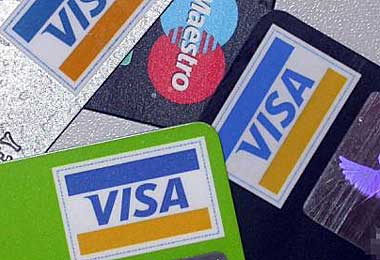Payment cards are first step towards making cash obsolete
If banks and major retailers have their way, notes and coins may soon be redundant, says David Prosser

On Wednesday, Mastercard launched Cashplus, the first UK version of the pre-paid plastic cards that are hugely popular in the US. You don't need a bank account to use a Cashplus card - Mastercard has a deal with the Post Office that enables people to charge up their cards with money at its 14,000 branches.
The launch is another step towards reducing people's reliance on cash. Although Cashplus cards can be used to withdraw money from ATMs, the £2 transaction fee is a disincentive. The fee for using Cashplus to pay for goods and services - in the same way as a debit card - is only £1.
If Cashplus proves successful, rival card issuers are likely to launch their own products. Visa is trialling the Gift card, launched as a replacement for paper gift vouchers; American Express is experimenting with a prepaid cashcard for use as a modern version of traveller's cheques.
The Cashplus card is also similar to an initiative from Oyster, the card that many Londoners use to pay for public transport. It is looking for banking and retail partners to help it expand the usage of Oyster, so that cards, once charged with cash, can be used in London shops, as well as to pay for bus or train fares.
Previous attempts to launch such products have not proved popular - card-issuers spent years trialling Mondex in the Nineties before shelving the project amid widespread disinterest from retailers and customers.
However, research from Apacs, the organisation that runs Britain's payment systems, shows cash is becoming less important. This month it revealed that the amount of money spent on plastic in 2004 outstripped the total spent using cash for the first time, chiefly thanks to the increased use of debit cards.
Apacs also warns that cash remains hugely popular with consumers. "Seven in 10 transactions last year were cash deals," says Apacs's Jemma Smith. "People like the safety of cash, particularly for small purchases, and we think cash will still represent 50 per cent of transactions in 10 years' time." Even so, Smith believes both the financial services industry and leading retailers are keen to reduce customers' reliance on cash. "I don't think they have a strategic plan to do away with cash, but there are clear reasons why retailers and banks like plastic."
The problem with Cashplus, however, is the cost. Customers must either pay £4.95 a month for the privilege of holding the plastic, or accept fees of £1 and £2 a time on spending and cash withdrawals. "It's hard to believe that the charges for opening and using the card reflect the real costs of delivering the service," says Claire Whyley, deputy director of policy at the National Consumer Council.
Rich Wagner, chief executive of Advanced Payment Solutions, which is introducing Cashplus in a joint initiative with Mastercard, points out that the card is primarily aimed at people who don't have access to traditional bank accounts. Although banks must now offer basic accounts to such customers, these are limited, Wagner argues.
"Our first target is the customer who has been disenfranchised by the financial community," says Wagner.
How everyone can save money online
"There is definitely a need to provide a payment option for people who want to shop online but are denied access to cheap credit," says Richard Mason, of price comparison service Moneysupermarket. He says 75 per cent of applications for the best credit deals are turned down, because borrowers' credit ratings aren't good enough.
At the extreme, financially excluded customers lose out twice over. "The internet is one of the best ways to save money because the best deals on so many things are now found online," says Mason. "But you need a card of some sort to pay for internet purchases."
Mastercard's Cashplus deal would extend the option of online shopping to people previously denied access, Mason admits. But he warns: "This is a very expensive option."
He suggests would-be internet shoppers apply for an uncompetitive credit card deal - Capital One's Classic card (29.9 per cent interest) is a good bet, he suggests - for which they are more likely to be accepted.
"People don't realise that you are allowed to put cash into your credit card account, so you never have to actually use the card to borrow and you never pay any interest," he says.
Subscribe to Independent Premium to bookmark this article
Want to bookmark your favourite articles and stories to read or reference later? Start your Independent Premium subscription today.

Join our commenting forum
Join thought-provoking conversations, follow other Independent readers and see their replies